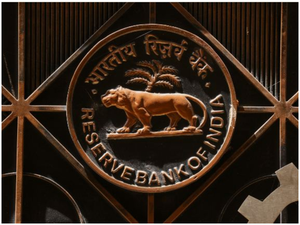New Delhi, March 2 (IANS) Compliance is taking the centre stage with 4x increase in RBI penalties on regulated entities (FY20-23), IIFL Securities said in a report.
Increasingly, these penalties are imposed for failure to follow the required processes, deficiencies in risk management practices, and protection of customer interests after the RBI increased oversight of non-bank entities in the last few years.
In the words of RBI Governor Shaktikanta Das, financial stability is a ‘public good’ that the central bank has achieved with great efforts, and it intends to preserve and strengthen the same, the report said.
Channel checks indicate that the RBI has increased frequency and depth of inspections, deputed on-site inspectors at major NBFCs for continuous supervision and developed risk-based supervisory framework, SPARC, enabling the RBI to take pre-emptive actions, the report said.
“We also believe that the era of light touch regulations for FinTechs has ended with the central bank proposing to set up a FinTech SRO,” the report said.
Additionally, the RBI may be mulling a revamp of the existing penalty structures, which may include increase in penalty amounts, remuneration claw back for top management or imposition of additional capital charge.
While the RBI’s enhanced and pro-active supervision bodes well for the sector’s long-term health, it also warrants closer investor attention in case of the first few instances of regulatory censure, which could be a precursor to more stringent actions by the central bank, the report said.
In recent quarters, anecdotally there are multiple instances of RBI imposing fines/penalties on banks/NBFCs or other regulated entities.
“We note that increasingly, these penalties are being imposed for contraventions of not only statutory compliances, but also for failure to follow the required processes, and continuous supervision. This is in addition to the annual RBI audit of these entities,” the report said.
Some of the recent RBI measures such as tightening of AIF/ARC regulations, issuance of KFS, non-compounding of penalties, etc., can be attributed to the enhanced supervision of business practices of these regulated entities.
–IANS
san/arm
Disclaimer
The information contained in this website is for general information purposes only. The information is provided by TodayIndia.news and while we endeavour to keep the information up to date and correct, we make no representations or warranties of any kind, express or implied, about the completeness, accuracy, reliability, suitability or availability with respect to the website or the information, products, services, or related graphics contained on the website for any purpose. Any reliance you place on such information is therefore strictly at your own risk.
In no event will we be liable for any loss or damage including without limitation, indirect or consequential loss or damage, or any loss or damage whatsoever arising from loss of data or profits arising out of, or in connection with, the use of this website.
Through this website you are able to link to other websites which are not under the control of TodayIndia.news We have no control over the nature, content and availability of those sites. The inclusion of any links does not necessarily imply a recommendation or endorse the views expressed within them.
Every effort is made to keep the website up and running smoothly. However, TodayIndia.news takes no responsibility for, and will not be liable for, the website being temporarily unavailable due to technical issues beyond our control.
For any legal details or query please visit original source link given with news or click on Go to Source.
Our translation service aims to offer the most accurate translation possible and we rarely experience any issues with news post. However, as the translation is carried out by third part tool there is a possibility for error to cause the occasional inaccuracy. We therefore require you to accept this disclaimer before confirming any translation news with us.
If you are not willing to accept this disclaimer then we recommend reading news post in its original language.













